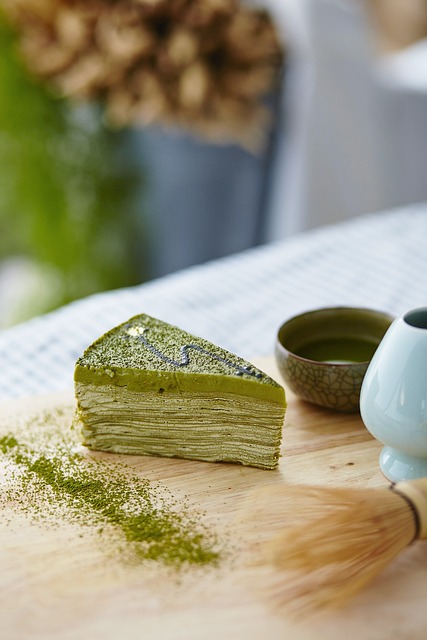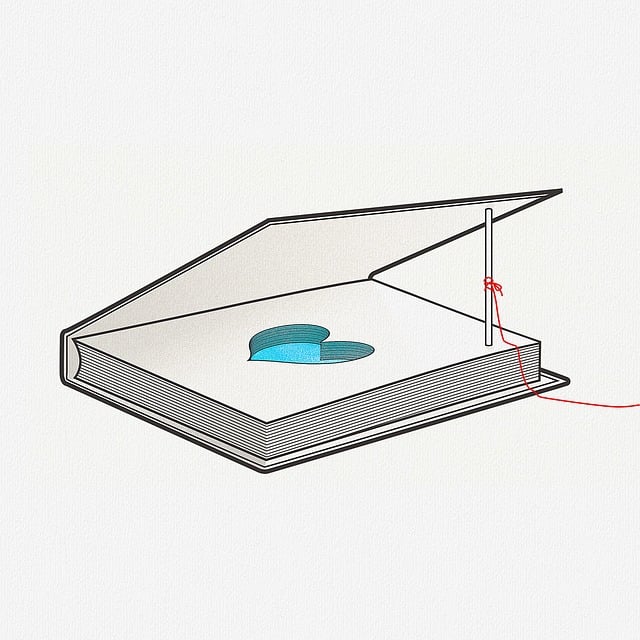Hair loss is a universal concern that affects millions of people worldwide, causing a profound impact on their self-esteem and overall well-being. While various factors can contribute to this distressing condition, recent attention has been drawn towards the potential connection between hair loss and kratom usage. Kratom, a popular herbal supplement known for its therapeutic properties, has garnered a significant following over the years. However, anecdotal evidence suggests that some individuals may experience hair loss after consuming kratom. In this article, we delve into the realm of preventing hair loss from kratom, exploring effective measures and remedies to combat this troubling issue. By delving into scientific studies and trusted sources, we aim to provide our readers with essential knowledge to make informed decisions about their hair health while navigating the world of kratom.
1. Understanding the Link: How Kratom Can Contribute to Hair Loss
While kratom has gained popularity in recent years for its numerous health benefits, there is growing concern that it may contribute to hair loss in some individuals. Before we delve into this subject, it’s crucial to understand the link between kratom use and hair loss.
- Assorted alkaloids: Kratom contains a variety of alkaloids, including mitragynine and 7-hydroxymitragynine, which interact with the body’s receptors. It is believed that these alkaloids may disrupt hormonal balance, potentially leading to hair loss.
- Reduction in nutrient absorption: Long-term kratom use can negatively impact the digestive system, inhibiting the absorption of essential nutrients vital for healthy hair growth. This deficiency may weaken hair follicles and contribute to hair loss over time.
- Vasoconstrictive effects: Kratom’s vasoconstrictive properties can limit blood flow to the scalp, depriving hair follicles of oxygen, nutrients, and hormonal support, which are necessary for healthy hair growth.
To avoid hair loss related to kratom use, it is important to take preventative measures. Speak with a healthcare professional for personalized advice, especially if you are experiencing persistent hair thinning or loss while using kratom. It is always wise to prioritize your overall health and well-being.
2. Expert Insights: The Science Behind Hair Loss from Kratom
The Science Behind Hair Loss from Kratom
While kratom has gained popularity for its potential health benefits, there have been concerns about its connection to hair loss. Understanding the science behind this phenomenon can help shed light on the subject. Here are some expert insights:
- Alkaloid Influence: Kratom contains alkaloids, including mitragynine and 7-hydroxy-mitragynine, which are believed to have interactions with certain receptors in the body. These alkaloids may affect hormonal balance, leading to hair loss in some cases.
- Hormonal Imbalance: Kratom’s alkaloids can impact hormonal levels, especially those linked to hair growth and loss. It is speculated that these alkaloids may disrupt the activity of androgen receptors, leading to hair follicle miniaturization and eventual hair loss.
Hair loss caused by kratom is still an area of ongoing research, and individual reactions may vary. It’s important to consult with a healthcare professional if you have concerns about hair loss and your kratom usage. Understanding the science can provide a foundation for further exploration and potential solutions for those experiencing hair loss as a result of kratom consumption.
3. Preventing Hair Loss: Practical Measures and Expert Advice
Preventing hair loss can be a concern for many people, regardless of gender or age. While complete prevention may not always be possible, there are practical measures and expert advice that can help minimize hair loss and maintain healthy hair. Here are some tips and recommendations:
1. Keep your scalp clean: Regularly shampooing your hair helps to keep your scalp clean and prevent the buildup of oil, dirt, and product residue that can contribute to hair loss. Use a mild shampoo that suits your hair type and avoid excessive scrubbing which can cause damage.
2. Follow a nutritious diet: A balanced diet enriched with essential nutrients is crucial for healthy hair growth. Include protein-rich foods like lean meat, eggs, and legumes in your meals. Omega-3 fatty acids found in fish, flaxseeds, and walnuts also promote hair growth. Additionally, consume a variety of fruits, vegetables, and whole grains to ensure an adequate intake of vitamins and minerals.
4. Nourishing Your Hair: Essential Nutrients and Supplements
Your hair reflects your overall health, and nourishing it from within is key to achieving strong, luscious locks. While a good hair care routine is important, ensuring your body receives essential nutrients and supplements is equally crucial. To promote healthy hair growth and maintain its vitality, consider incorporating the following elements into your diet and lifestyle:
1. Vitamin A: This vitamin is essential for sebum production, which keeps the scalp moisturized. Incorporate foods rich in vitamin A, such as sweet potatoes, carrots, and spinach, into your diet.
2. Vitamin E: Actively enhance blood circulation to the scalp by consuming vitamin E-rich foods like almonds, sunflower seeds, and avocados. This vitamin also helps improve hair strength and adds natural shine.
3. Iron: Iron deficiency can lead to hair loss. Boost your iron levels by including foods like lean meats, green leafy vegetables, and legumes. Pair iron-rich foods with vitamin C sources, like citrus fruits or berries, to optimize absorption.
4. Omega-3 Fatty Acids: These healthy fats contribute to scalp health and hair density. Add omega-3 fatty acid sources like salmon, walnuts, and chia seeds to your diet to nourish your hair from the inside out.
Supplements can also play a valuable role in nourishing your hair. However, it is recommended to consult with a healthcare professional before starting any new supplement regimen. They can guide you in choosing the right supplements based on your individual needs. Remember, a balanced diet alongside proper hair care can pave the way for lustrous, vibrant hair.
5. Holistic Approaches: Lifestyle Changes to Combat Hair Loss
Dealing with hair loss can be a distressing experience, but taking a holistic approach to tackle the problem can yield promising results. In addition to seeking professional advice, making certain lifestyle changes can contribute significantly to reducing hair loss and promoting healthy hair growth. Consider adopting the following practices:
- Eating a Nutrient-rich Diet: A balanced diet containing essential vitamins, minerals, and proteins is vital for maintaining healthy hair. Incorporate foods such as leafy greens, eggs, fish, nuts, and seeds into your meals to ensure you are receiving the necessary nutrients that support hair growth.
- Managing Stress Levels: High levels of stress have been linked to hair loss. Engage in stress-reducing activities such as meditation, yoga, or regular exercise to keep stress in check, as this can positively impact hair health.
- Avoiding Harsh Styling Practices: Excessive heat, tight hairstyles, and chemical treatments can weaken hair and lead to breakage. Opt for gentle styling methods and give your hair regular breaks from heat styling to promote healthier and stronger hair.
Furthermore, it is advisable to consult a health professional or dermatologist to rule out any underlying medical conditions that may be causing hair loss. Remember, combating hair loss requires a comprehensive approach that not only addresses external factors but also considers the internal health of your body and mind.
6. Topical Solutions and Hair Care Regimens for Kratom-Related Hair Loss
Kratom-related hair loss can be a distressing side effect that some individuals may experience. If you are one of them, don’t worry – there are topical solutions and hair care regimens that can potentially help diminish the impact on your locks. Here are a few recommendations:
1. Nourishing Hair Masks:
- Incorporate hair masks into your routine to provide your scalp and hair with essential nutrients and hydration.
- Look for masks containing ingredients like argan oil, coconut oil, or avocado oil, known for their moisturizing and strengthening properties.
- Apply these masks once or twice a week, leaving them on for around 30 minutes, and then rinse thoroughly.
2. Gentle Hair Care:
- Avoid using harsh shampoos that contain sulfates or chemicals that can further damage your hair.
- Opt for gentle, sulfate-free shampoos and conditioners that are specifically formulated for damaged or thinning hair.
- Limit the use of hot styling tools, as excessive heat can weaken the hair shaft and exacerbate hair loss.
- Consider air drying your hair whenever possible or using heat protectant products before styling with hot tools.
Remember, everyone’s hair is unique and reacts differently to various treatments, so it’s essential to find what works best for you. If you continue to experience significant hair loss or are unsure about which products to use, consulting a dermatologist or trichologist can provide you with personalized guidance and recommendations.
7. Seeking Professional Help: Medical Interventions and Treatment Options
When it comes to seeking professional help for medical interventions and treatment options, there are several avenues to explore. It is essential to consult with healthcare professionals who can guide you through the process and offer expert advice specific to your needs. Below are some common medical interventions and treatment options:
- Medication: Prescription medications play a crucial role in managing various health conditions. They can help alleviate symptoms, control diseases, or even cure certain illnesses. Depending on the diagnosis, your doctor may prescribe medications that target specific symptoms or address the root cause of the problem.
- Surgery: In some cases, surgical interventions may be necessary to treat or correct a medical condition. Surgical procedures can range from minor outpatient operations to complex surgeries requiring hospital stays. Surgeons use advanced techniques and technologies to ensure the best possible outcome for patients.
- Therapy: Therapy encompasses different approaches, such as physical therapy, occupational therapy, or cognitive-behavioral therapy (CBT). These therapies aim to promote recovery, improve functionality, and address mental health concerns. Highly trained professionals provide guidance and design personalized treatment plans based on individual needs.
Other medical interventions and treatment options may include lifestyle modifications, alternative medicine practices, and various forms of rehabilitation. It is crucial to consult with healthcare professionals who can evaluate your specific situation and recommend the most suitable interventions or treatments. Remember, each person’s medical journey is unique, and seeking professional help is the first step toward finding the best course of action for your health and well-being.
FAQ
Q: Can kratom cause hair loss?
A: While not directly proven, some individuals have reported hair loss as a potential side effect of consuming kratom.
Q: Are there any measures to prevent hair loss from kratom?
A: Yes, there are several preventive measures you can take to reduce the risk of hair loss while using kratom.
Q: What are some effective remedies to combat hair loss?
A: There are numerous natural remedies and lifestyle practices that can help prevent and mitigate hair loss associated with kratom use.
Q: Is proper nutrition important for preventing hair loss?
A: Absolutely. A healthy and balanced diet that includes vital nutrients can significantly contribute to preventing hair loss caused by kratom use.
Q: How does kratom potentially lead to hair loss?
A: The exact mechanism is still not completely understood, but it is speculated that kratom’s influence on hormonal imbalances or nutritional deficiencies may contribute to hair loss.
Q: Can topical treatments help prevent hair loss caused by kratom?
A: While not specifically studied in relation to kratom, using natural topical treatments such as oils or serums may promote hair growth and reduce the risk of hair loss.
Q: Are there any other lifestyle changes that can help prevent hair loss?
A: Yes, maintaining good scalp hygiene, reducing stress levels, avoiding excessive heat or chemical treatments, and regular exercise can all contribute to preventing hair loss associated with kratom use.
Q: Can I continue using kratom while taking preventive measures?
A: It is advisable to consult with a healthcare professional before making any changes to your kratom consumption. They can provide personalized advice based on your specific circumstances.
Q: Are there any supplements that can help prevent hair loss?
A: Certain supplements, such as biotin, saw palmetto, or vitamins A, C, D, and E, have been associated with promoting hair health. However, it is recommended to consult with a healthcare professional before taking any supplements.
Q: Should I consider discontinuing kratom if I experience hair loss?
A: If you notice excessive hair loss or other concerning symptoms, it is best to consult a healthcare professional. They can evaluate the situation and determine if continuing kratom use is appropriate for you.
Q: Are there any alternative treatments for hair loss from kratom?
A: Alternative treatments such as acupuncture, herbal remedies, or scalp massages have been suggested by some individuals, but scientific evidence supporting their efficacy specifically for kratom-related hair loss is lacking.
Conclusion
In conclusion, understanding the causes and implementing effective measures to prevent hair loss from kratom consumption is essential for those who enjoy its benefits. While kratom itself does not directly cause hair loss, its potential effects on hormonal balance and nutritional deficiency may contribute to this issue. By practicing moderation in usage, maintaining a healthy lifestyle, and incorporating a well-rounded diet, users can significantly reduce the chances of experiencing hair loss.
Furthermore, various remedies, such as using gentle shampoos and conditioners, incorporating herbal supplements, and seeking medical advice, can help combat hair loss caused by kratom consumption. Remember, it is important to consult with a healthcare professional or trichologist to determine the root cause of your hair loss and develop a personalized approach to tackle the issue effectively.
As with any substance or lifestyle choice, being aware of the potential side effects and taking proactive measures is crucial to maintain overall well-being. By arming yourself with knowledge and implementing preventive measures, you can continue to enjoy the positive aspects of kratom while keeping your hair healthy and vibrant. Stay informed, take care of your health, and remember, prevention is key in combating hair loss from kratom.












